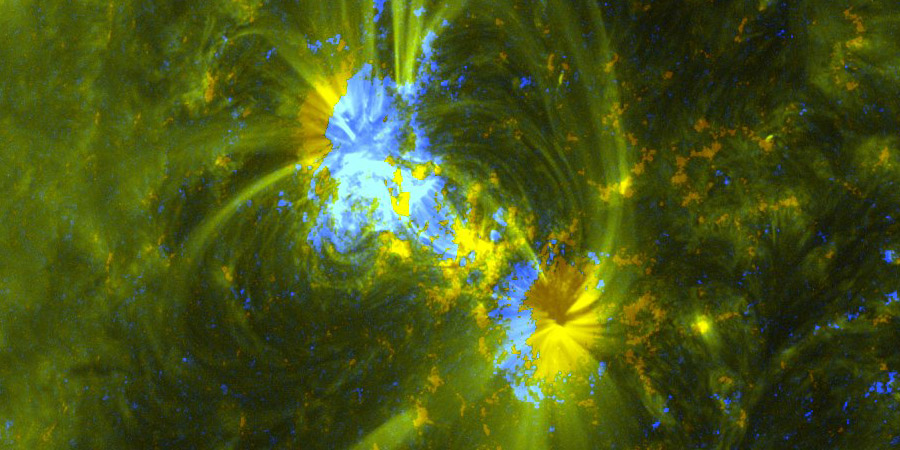Sunspot region 2674
Friday, 1 September 2017 18:03 UTC

We admit! We have been ignoring sunspot region 2674 since it appeared on the solar disk a few days ago. It was a large sunspot region at the time with two massive sunspots. It however wasn't all that complicated and there wasn't much of a risk that it would produce a strong solar flare. That changed however during the past 12 hours or so. Keep on reading to find out what sparked our sudden interest in this sunspot region.
What sparked our interest are a couple of C-class solar flares from this sunspot region. A closer look reveals that this sunspot region has been developing nicely during the past 12 hours with some rapid flux emergence in the middle of the group between the large trailer and leading sunspots. There is some magnetic mixing going on there and a small delta structure is forming. The chances aren't high yet but if this development continues we might see a low-level M-class (R1) event in the near future.
⇧ Video: Sunspot region 2674 as seen in visible light by NASA SDO. The video covers the past 24 hours. Note the spot development in the middle.
Thank you for reading this article! Did you have any trouble with the technical terms used in this article? Our help section is the place to be where you can find in-depth articles, a FAQ and a list with common abbreviations. Still puzzled? Just post on our forum where we will help you the best we can!
Latest news
Latest forum messages
Support SpaceWeatherLive.com!
A lot of people come to SpaceWeatherLive to follow the Solar activity or if there is a chance to see the aurora, but with more traffic comes higher costs to keep the servers online. If you like SpaceWeatherLive and want to support the project you can choose a subscription for an ad-free site or consider a donation. With your help we can keep SpaceWeatherLive online!
Space weather facts
| Last X-flare | 2025/12/08 | X1.1 |
| Last M-flare | 2025/12/20 | M1.0 |
| Last geomagnetic storm | 2025/12/12 | Kp5 (G1) |
| Spotless days | |
|---|---|
| Last spotless day | 2022/06/08 |
| Monthly mean Sunspot Number | |
|---|---|
| November 2025 | 91.8 -22.8 |
| December 2025 | 120.8 +29 |
| Last 30 days | 109.9 +21.6 |





